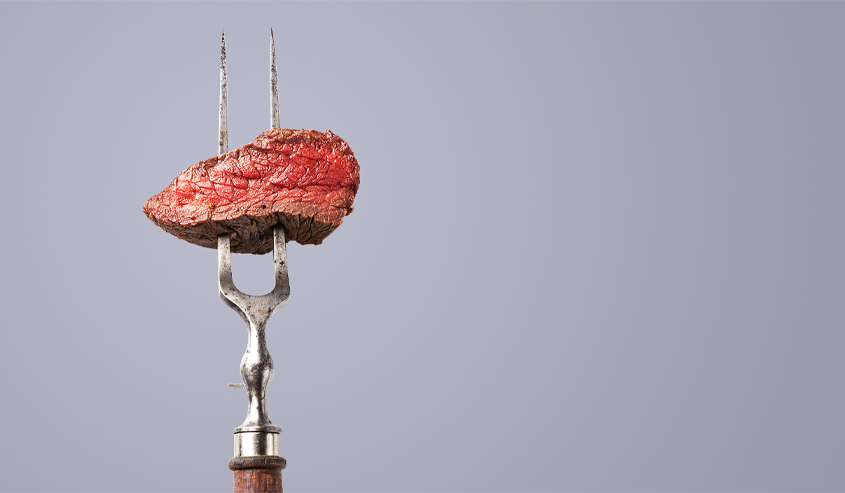
Today we know that what we eat can have a great impact on our health. This is also true for kidney disease and its prevention. The National Institute of Diabetes and Digestive and Kidney Diseases reports that a person suffering from chronic kidney disease can prevent or delay some of the health problems associated with the disease just by keeping mindful of their eating habits.
Studies Show a Link to Red Meat Consumption
Recent studies have shown that red meat consumption is associated with an increased loss of normal kidney function. These studies indicated that the higher the consumption of red meat products, the greater the risk.
The human body requires protein to help build muscle and repair tissues. But because animal proteins, specifically red meat products, generate large amounts of acid in the blood system, it can cause acidosis when the kidneys are not able to eliminate acids fast enough. Consequently, the National Kidney Foundation suggests that eating a more plant-based diet incorporating fruits and vegetables in place of red meat products may help or prevent chronic kidney disease.
Outdated Material Being Put to Rest
In fact, a study published in the Journal of Renal Nutrition has attempted to put to rest some of the outdated information that is decades old.
“It’s been shown that patients with CKD who obtain food from plant sources may actually demonstrate improvement in several of the complications of CKD like hypertension, metabolic acidosis and hyperphosphatemia,” said the lead author Dr. Shivam Joshi, clinical assistant professor at the NYU Langone School of Medicine and attending physician and nephrologist at NYC Health + Hospitals/Bellevue.
Following a More Plant-Based Diet May Help Slow Kidney Disease
Limiting the intake of red meats and following a more plant-based diet may help slow down the progression of kidney disease while keeping nutritional needs stable. Modifying protein sources can still provide high quality proteins and adequate amino acids while
- Reducing protein in the urine
- Slowing the decline of GFR and kidney blood flow
- Resulting in less kidney tissue damage
- Reducing cyst growth
- And improving the lipid profile of the blood
Protein Intake Depends on How Healthy Your Kidneys Are
When it comes to kidney disease, it’s important to adjust your protein intake based on how healthy your kidneys are or what type of treatment you’re getting. For instance, people who are in the early stages of chronic kidney disease have different dietary requirements than those with kidney failure. People in the early stages of kidney disease are often advised to limit protein, however dialysis patients require more due to protein loss during dialysis.
Where to Get Plant-Based Proteins
Good sources of non-meat protein are
- Soy products and tofu
- Legumes
- Meat substitutes
- Nuts and nut butters
- Whole grains
Because some processed meat replacement products can be high in sodium, it’s important to limit the use of these products.
“Instead of running away from these foods, and perhaps incurring harm by doing so, we should be embracing these foods to our collective benefit,” says Dr. Joshi. We now know that there are other benefits of following a more plant-based diet including weight control, diabetes and heart disease as well as some forms of cancer. Plant-based diets also contain more fiber and phytochemicals.
At Vital Imaging, our mission is to provide cutting edge technology with exceptional patient care. We are here to support you each step of the way. Call us today (305) 596-9992 for more information.
